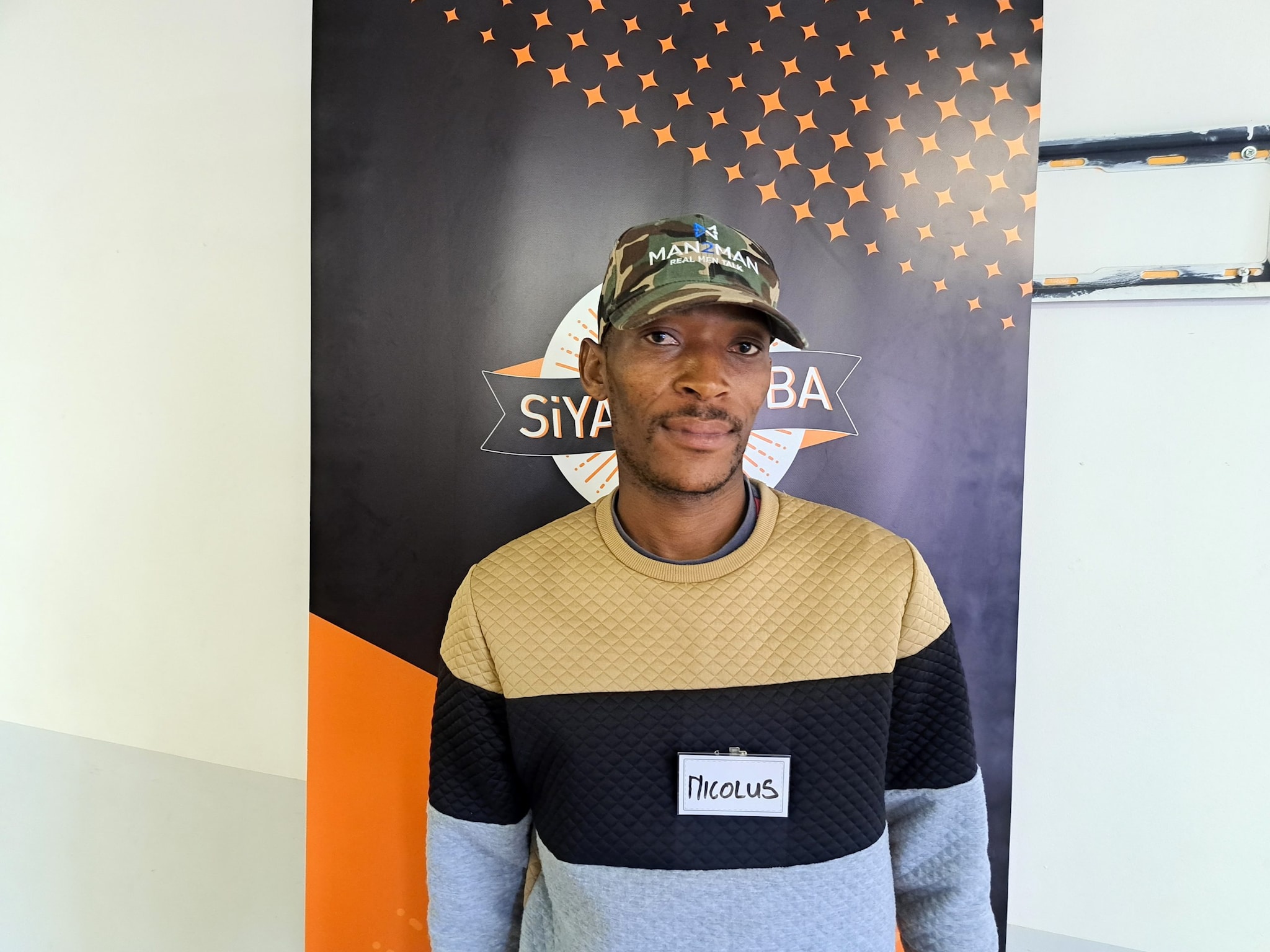CDC-supported HIV Workshop Transforms the Lives of Men in South Africa

Credit: Tebogo Monama
Date: South Africa; 02/01/2023
When Nicolous Sithole walked into the Stanza Bopape Community Centre in Mamelodi township in Gauteng Province, he wanted to improve his computer skills. Little did he know, he would gain much more than that. Sithole would walk away from this experience as part of a community of men who were seeking healthier and more meaningful lives.
In the weeks leading up to the computer course, Sithole was recruited to attend a preliminary workshop where men gathered in safe spaces to speak about sensitive topics affecting men in the community without judgment. Sithole said, “The center told me that before I could refresh my computer skills, I must attend the workshop. During the workshop, we discussed a variety of topics including gender-based violence and unemployment.”
The two week long workshop, called Man-to-Man, was run by Siyayinqoba Community Trust and Shout it Now. It was attended by 28 men in his community.
“It was a space to talk about societal issues. It gave one assurance that they are not alone. That you can speak up as a man and it is not a weakness. But also, we learned how to be better men. How to be a better father, son, and a brother. It reminded us that we have a responsibility to be teachers in the community. That the younger generation can look up at us and see that things can be different.”
Not only did Sithole become a part of a supportive community, but he was also educated about sexual health, including pre-exposure prophylaxis (PrEP) – a highly effective medicine taken to prevent HIV infection.
“Hearing all the information on PreP helped to change my perspective around it. We came into the workshops with attitudes that taking PreP was just taking a pill to avoid taking antiretroviral therapy (ART). But now, I understand that it is about ensuring that you don’t get HIV. It is about protecting yourself.”
On the last day of the workshop, the men voluntarily tested for HIV. “All 28 of us tested. No one asked us to, but we now understand why it is important to know your HIV status,” Sithole said.

Beauren Joauwana , a Man-to-Man facilitator at Siyayinqoba Community Trust, said recruitment for the workshops is done at community centers – just like the one Sithole walked into weeks earlier.
“During the daily workshop sessions, the men discussed gender norms, gender-based violence, sexual health and how to be good role models,” Joauwana said. They receive a certificate of attendance at the end of the workshops.
“Even after the two weeks, they are not abandoned. If they still want to reach out after the workshops, they can do so through a WhatsApp number. We give them continuous support if they need it.”
Through Shout it Now and its partners, this lifesaving initiative has helped reach 17,155 men aged between 15 and 49 in five South Africa districts in 2022 with HIV education and care, as well as resources to build stronger communities. Men like Sithole come away from this experience with the tools needed to live healthier lives.
“The Man-to-Man program has had a significant impact in influencing behavioral change in men. Community programs continue to be a highly effective way to provide care to those who need it most and we are proud of the work this program is doing to end HIV in our country,” says CDC South Africa Sego Debeila, a public health specialist in HIV Prevention.
Programs like Man-to-Man are a part of CDC’s broader effort to provide lifesaving HIV treatment and prevention for those who need it most. Just last year, CDC, through PEPFAR, helped 1.4 million people learn their HIV-positive status, more than 60% (61%) of all new HIV diagnoses identified through PEPFAR.